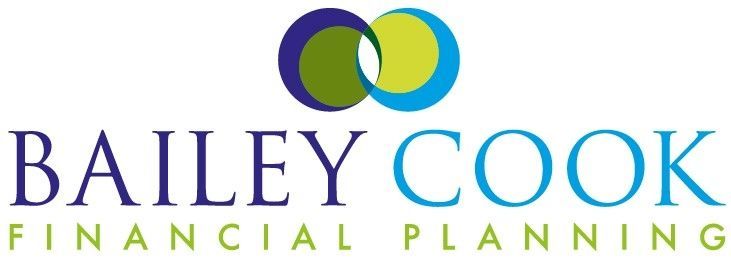News

The UK Stock Market - a return to favour?
Tuesday 13th August 2024
First a look at the U.S.A. . . .
It probably doesn’t feel like we have any reasons for optimism after a very turbulent week in stock markets, with the worst daily loss for the Standard & Poors (S&P) 500 index in nearly two years last Monday after a terrible session in Japan, and sharp losses for most other major indices.
U.S. recession fears were fuelled by poor jobs data with a weak employment market following some consumer facing companies reporting changing consumer behaviour, such as spending less, seeking discounts or trading down to cheaper products. All of this has conspired to suggest the consumer might be spending less and hence the U.S. may be sliding into recession. A recession is possible, but seems unlikely. U.S. consumers are seeing their incomes growing even after adjusting for the impact of inflation – they have weathered the inflation storm. There were two jobs for every unemployed person in March 2022 and whilst that figure has reduced there are still 1.2 jobs per unemployed person, even after this latest pick up in the unemployed figures. Before COVID struck, 1.2 was the most jobs per unemployed person the U.S. had seen since it began recording the data in 2001. So, it does seem as if the U.S. labour market has loosened, but in quite a healthy way – the ‘Goldilocks’ scenario of a cooling in inflation, a soft landing in Western economies (and thus corporate earnings) and rate cuts from the Federal Reserve, Bank of England and others is still being played out. Indeed one of the consequences of last week’s turbulence is an expectation of the US cutting interest rates in September, by maybe as much as 0.5%.
There is also something quite technical going on in markets at the moment and it’s called the unwinding of the Japanese ‘carry trade’, hence why the Japanese stock market led the way by falling over 12% on Monday to bounce back 8% on Tuesday last week. Carry trade means borrowing at a low interest rate and investing to earn a higher one. Over the last few decades Japan has presented a lot of opportunities for carry trades because its very low interest rates made it an ideal source of borrowing. Imagine if you can borrow in the yen (Japanese currency) at below 1% and invest in U.S. dollars at 5% (a conservative estimate of the current interest rate differential). So there was a double impact in the markets Japan increased its interest rate to 0.25% so the yen rose in value and at the same time the U.S. employment data was weak so led to a greater expectation of interest rates cuts in the US, hence investors of such carry trades sold. It has all since settled down but is one to watch, as indeed is the consumer - will they keep spending?
A decent enough outlook for the UK
So back to the UK with the Bank of England cutting rates for the first time since 2020 by 0.25% to 5.00%. However, Governor Andrew Bailey stressed that further cuts are not a given anytime soon. Like everywhere else, the turmoil since has shifted markets’ implied rate expectations of another 0.50% cut by the end of the year in the UK. Bank of England rate expectations have not come down as sharply as elsewhere, though. Markets think that the bank will settle on 3.5% at some point in 2026, compared to mid-2025 for the U.S., and before the end of 2024 in Europe. The one key aspect to stress is that Central Banks, having achieved the increased rate rises over the last couple of years, and hence a degree of normalisation, will not want to cut to 0% again, but maintain a level of about 3.5% to 4.0% long term.
In the UK economic data has actually been improving lately, counter to the trend in most developed countries. We are coming off a long streak of weak activity and high inflation – worse than developed world peers – but inflation has been at the BoE’s 2% target for two consecutive months and that is clearly helping confidence. The most recent set of business sentiment surveys were stronger in the UK than anywhere else.
We focussed last time on the UK economy and as you’d maybe expect with a new Government the picture is being painted very black, so the only way is up and indeed we seem to be in a good position compared to our peers.
From an investment perspective does the UK Stock Market also look positive?
It does, and indeed, many fund managers are increasing their exposure to the UK, as on a Price/Earnings ratio (‘P/E ratio’) basis, it looks cheap and a good hedge. The P/E ratio is one assessment of how cheap or expensive a share is. Indeed Brewin Dolphin, in a recent bulletin, stated “There is a larger weighting to UK equities instead, which has helped mitigate some of the tech losses as energy and defensive stocks rallied. We like the region as it acts as a hedge to our US position.” However, the UK has lost favour over the last 20 years and is in need of revitalisation.
20 years ago a huge amount of UK shares, typically 50%, would be held by insurance companies and defined benefit company pension schemes. UK companies were raising capital and were net buyers of overseas businesses. It would have been unusual to see an insurance company managed fund holding less than 40% in UK shares. For the last 20 years accountants, actuaries and regulators have much reduced this. Also, do not forget it started with one of Gordon Brown's first acts as Chancellor of the Exchequer in the Labour Government of 1997, when he abolished the tax credit on dividends for pension funds. This reduced by a quarter overnight the income that company pension schemes received from share dividends – and dented the financial health of many of them. This was the catalyst for the closure of many schemes. Subsequent interventions by regulators – for example, requiring companies to account for pension fund deficits on balance sheets – exacerbated these problems. Many schemes de-risked by moving out of shares into fixed interest investments such as Government Gilts i.e. bonds. The UK stock market represented 11% of the MSCI world stock market index in 2000 and today is around 4%.
There seems to be a recognition of getting investment back into UK Companies and you could see this by the last Government proposing the British ISA. Under the new Government getting pension funds investing in UK shares is on the agenda as the Government believes pension schemes can help tackle the issue by directing capital into high-growth UK investments.
A boost to investing in the UK to address the imbalance that has built over the last 20 years makes sense and we await detail of the reforms.
Our attention and commentary will turn in two directions over the coming months:
1. The US Election and market impact - remember the saying “if the US sneezes the rest of the world catches a cold” hence it’s importance. One statistic to leave on is the irony of the assassination attempt on Donald Trump, which led to a boost in his ratings and hence stronger chance of a Republican win. With the Republicans being pro guns, gun maker Smith and Wesson’s shares jumped 11% on the Monday following Trump’s shooting!
2. Chancellor Rachel Reeves Budget announced for the 30th October and potential changes such as with Capital Gains and Inheritance Tax, neither of which were protected in their election pledges.



